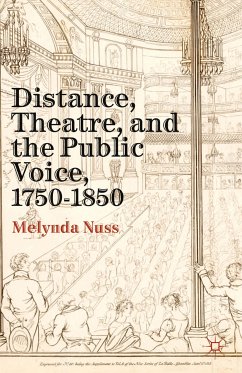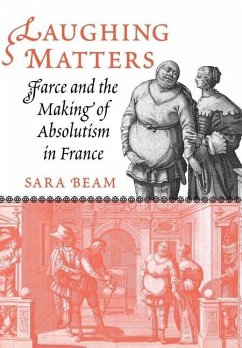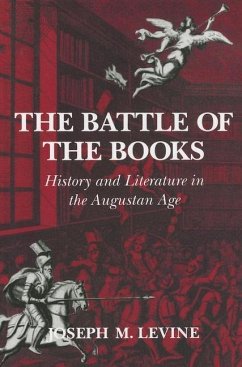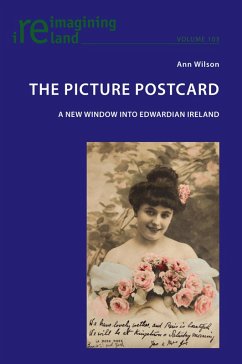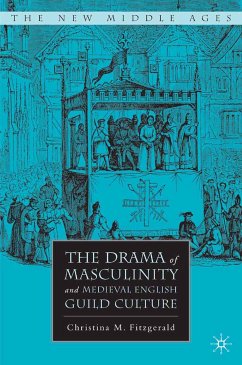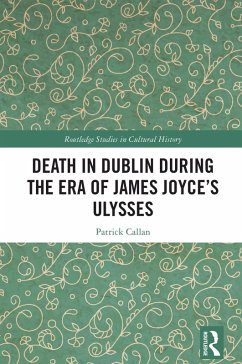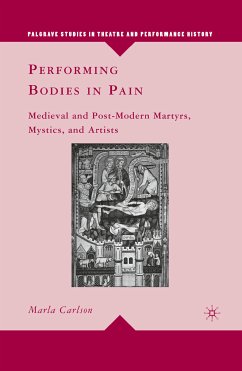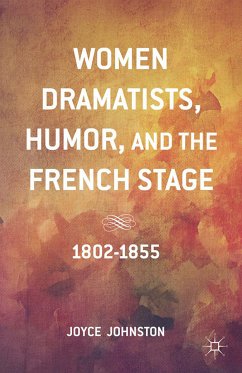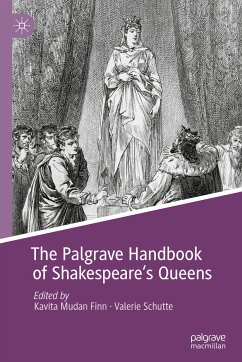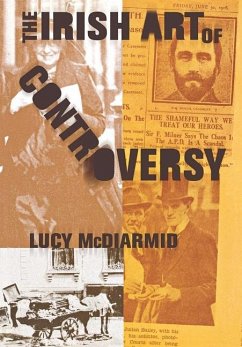
The Irish Art of Controversy (eBook, PDF)

PAYBACK Punkte
61 °P sammeln!
Controversies are high drama: in them people speak lines as colorful and passionate as any recited on stage. In the years before the 1916 Rising, public battles were fought in Ireland over French paintings, a maverick priest, Dublin slum children, and theatrical censorship. Controversy was "popular," wrote George Moore, especially "when accompanied with the breaking of chairs."In her new book, Lucy McDiarmid offers a witty and illuminating account of these and other controversies, antagonistic exchanges with no single or no obvious high ground. They merit attention, in her view, not because th...
Controversies are high drama: in them people speak lines as colorful and passionate as any recited on stage. In the years before the 1916 Rising, public battles were fought in Ireland over French paintings, a maverick priest, Dublin slum children, and theatrical censorship. Controversy was "popular," wrote George Moore, especially "when accompanied with the breaking of chairs."In her new book, Lucy McDiarmid offers a witty and illuminating account of these and other controversies, antagonistic exchanges with no single or no obvious high ground. They merit attention, in her view, not because the Irish are more combative than other peoples, but because controversies functioned centrally in the debate over Irish national identity. They offered to everyone direct or vicarious involvement in public life: the question they articulated was not "Irish Ireland or English Ireland" but "whose Irish Ireland" would dominate when independence was finally achieved.The Irish Art of Controversy recovers the histories of "the man who died for the language," Father O'Hickey, who defied the bishops in his fight for Irish Gaelic; Lady Gregory and Bernard Shaw's defense of the Abbey Theatre against Dublin Castle; and the 1913 "Save the Dublin Kiddies" campaign, in which priests attacked socialists over custody of Catholic children. The notorious Roger Casement-British consul, Irish rebel, humanitarian, poet-forms the subject of the last chapter, which offers the definitive commentary on the long-lasting controversy over his diaries.McDiarmid's use of archival sources, especially little-known private letters, indicates the way intimate exchanges, as well as cartoons, ballads, and editorials, may exist within a public narrative. In its original treatment of the rich material Yeats called "intemperate speech," The Irish Art of Controversy suggests new ways of thinking about modern Ireland and about controversy's bluff, bravado, and improvisational flair.
Dieser Download kann aus rechtlichen Gründen nur mit Rechnungsadresse in A, D ausgeliefert werden.




